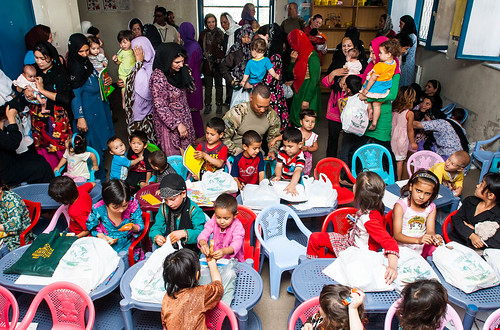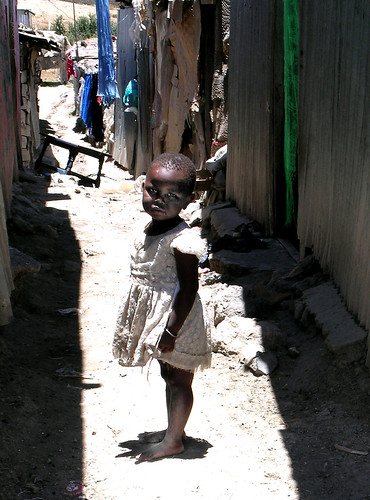With so many wonderful charities out there, it can be very difficult to select the one that is right for you. The good news is you do not have to be rich in order to give back. In fact, studies show; those who make lower monthly incomes actually give a higher percentage of their yearly wages to charity than do those who are considered ‘higher class’. Every little bit helps and even if you are not able to donate money, you can donate your time and still help those in need.
Giving back feels great. It doesn’t matter if you give $1 or $1,000. Not only does it help others, but it helps you as well. It gets you out of your ‘bubble’ in the world and really changes your outlook on life. Even within your own community, there are people or animals living in situations that are much different than your own. It’s hard to be too caught up in your own troubles when you see others in the world who are much worse off than you. Charities truly bring the world together and best of all; it just feels good knowing you are doing your part and making a change.

What Are You Interested In?

The first thing you want to think about when it comes time to select a charity is what types of things you are passionate about. What situations in the world bother you most? Many people like to donate their time or money to charities that relate to their past or experiences they have seen those close to them go through. Maybe you were homeless for a period of time in your life and food wasn’t always readily available; this may mean you feel most connected with helping out homeless shelters and giving food to those who cannot afford it. There is nothing like a personal connection to a charity. It feels good to help people (or animals) from being in tough situations because everyone deserves to have a healthy and fulfilling life.
Research A Few Charities
Now that you have selected the type of charity you are looking for, it’s time to make sure you choose the best charity for you. Whether you are going to be offering money to help animals, children, the hungry, people who need their homes rebuild etc, it’s important to make sure your money is truly going to the cause. You have worked hard for your money and you deserve to know exactly where it is going to be spent.
Check out each charity’s values. What is their goal and how do they go about doing it? Are they helping people locally or in other parts of the world? Most people stick with giving to charities that are well-known and that they have heard of before. If you are unsure whether or not the charity you are considering donating to is legitimate, go to the Internal Revenue Service website. All charities will be listed there.
Many charities may contact you via mail or on the phone. Do not give your personal information to them before doing your research. Every charity should have a working phone number and address. If you cannot find these pieces of information, do not waste your time donating money. The sad thing is, there are many scams out there and people who either want to steal your money or even your identity.
Consider Companies That Have a Tough Time Making Money
Do not hesitate to give to organizations that you may not have ever heard of before. Many charities that are either new or struggling do not have the money or manpower required to really get their name out there and receive the donations they need. If you find an organization that you think sounds like something that you would like to give to, just take a little more time getting to know them and you should have nothing to worry about. Charities that typically go unknown by the masses are homeless shelters and food banks so keep them on your radar.
Much of the time, most people are giving to the same charities and there are people around the globe who are still in need and not receiving the help they require. If you can find an obscure charity that is trusted and that you know will get help to those who need it most, then this is something you should definitely consider.
Local Charities

The same goes for charities that help locally. So many charities these days give money to other countries and while that is fantastic, you may want to put some of your charity dollars (or time) to people who are right in your own neighborhood. It feels great knowing you are helping your own community and making a difference in your city or town. This will also make it much easier for you to keep better tabs on your money and take part in the organization yourself to see first-hand how things are being run.
Ask Questions

As part of your research, it is important to contact the charities you are looking into and ask them questions. They should be able to tell you how much money they have donated so far to those in need, how many people were helped and how much of your donation is going to go to the cause. Be cautious of organizations that struggle to answer these types of questions. A charity should be able to tell you about their goals, future of the organization and things of that nature without hesitation.
How Much Money Goes Where
There are some organizations out there that end up giving most of the money that is donated to pay their workers as well as their expenses. Watch out for charities that keep high amounts of your donation. Some have been known to keep as much as 95% of donated money. Your money should definitely be going much further than that. However, there are exceptions to the rule. Many new organizations have larger expenses and are not able to give as much of your money so this may be something to keep in mind.
A good rule of thumb is to stick with charities that are going to donate around 60% to 70% of your money to the cause. This way, you know your money is making an impact. Keep in mind just how much money it takes in order to run an organization. Even if everyone were working for free, there are all types of expenses that may include rent, food, utilities, and transportation. This is why it’s next to impossible for every single penny you donate to be sent directly to the cause.
You Can Also Choose to Donate Time
If you do not feel comfortable donating money and you are unable to donate time, you may want to contact charities and ask them what kinds of things they are in need of. A lot of the time, charities are using tools or vehicles that are outdated and they may be very happy to have such items donated to them in order to keep their organization running smoother.
Keep Your Information Safe
It is always important to keep your personal information safe. It is a good idea to avoid giving your credit card information over the phone or via the internet if you can help it. Typically, the safest way to give is to pay via check.
Trusting your gut when it comes to most things in life is extremely important. Something not feel right? Listen to your feelings and consider searching for other charities instead. Donating should be a fulfilling and rewarding experience.
Make Sure Your Money Goes Where It Should

It is important to do what you can to make sure your money goes where it is supposed to. While giving cash may seem quick and simple, it isn’t a very good idea. If you give cash, there is no way to track your money. Offering a check that is payable to the charity you are donating to is the best idea because your money is less likely to get lost along the way.
While it’s impossible to guarantee that your money is going where you want it to, taking the proper steps to make sure you are giving to a charity that is trusted is going to give you the peace of mind that your money is being put to good use.
Volunteer Work
To know that your contributions are helping those in need, you may want to consider doing charity work instead of just giving money or you could do both and you’ll get an insider view of the organization. This is going to give you an opportunity to get a larger view of the charity; learning about exactly how they run things. Oftentimes, you are going to meet some pretty amazing people and end up being a part of the charity for the rest of your life.
Sebastian is a freelance writer and a blogger. He writes for a UK based charity job portal and through his posts advises about how to go for the best ngo jobs available in UK.
 Despite our high tech gadgets, jaw dropping skyscrapers, and speedy bullet trains, the fact still remains that more than 7 million children under the age of 5 are dying each year.
Despite our high tech gadgets, jaw dropping skyscrapers, and speedy bullet trains, the fact still remains that more than 7 million children under the age of 5 are dying each year.



